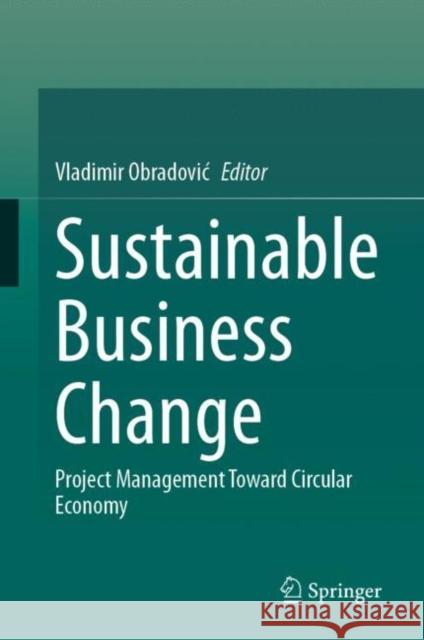Sustainable Business Change: Project Management Toward Circular Economy » książka
Sustainable Business Change: Project Management Toward Circular Economy
ISBN-13: 9783031235429 / Angielski / Twarda / 2023 / 384 str.
Sustainable Business Change: Project Management Toward Circular Economy
ISBN-13: 9783031235429 / Angielski / Twarda / 2023 / 384 str.
(netto: 575,06 VAT: 5%)
Najniższa cena z 30 dni: 578,30
ok. 16-18 dni roboczych.
Darmowa dostawa!
This volume aims to explore project management contributions to sustainable business change based on renewability, reuse, and repair as well as the effect of circular economy business solutions on project management in terms of the management approach, governance, and leadership. The main aim of integrating project management with a circular business paradigm is not only to learn how project management can contribute to achieving circular economy principles, but also to understand the impact of business needs on project management. By understanding these needs, recommendations can be developed and promoted among different stakeholders such as governments, financial institutions, and education institutions with the goal of supporting and assisting project management to drive sustainable business change. This approach will enable readers to assess how project management professions can support a shift toward sustainable business. The primary audience of this work is management scholars, educators, researchers, and students. Scholars, government representatives, financial institutions, management educators, start-up companies, innovative entrepreneurs, and all others who use the circular economy to support sustainable development can also find much of use in this book.
This volume aims to explore project management contributions to sustainable business change based on renewability, reuse, and repair as well as the effect of circular economy business solutions on project management in terms of the management approach, governance, and leadership. The main aim of integrating project management with a circular business paradigm is not only to learn how project management can contribute to achieving circular economy principles, but also to understand the impact of business needs on project management. By understanding these needs, recommendations can be developed and promoted among different stakeholders such as governments, financial institutions, and education institutions with the goal of supporting and assisting project management to drive sustainable business change. This approach will enable readers to assess how project management professions can support a shift toward sustainable business. The primary audience of this work is management scholars, educators, researchers, and students. Scholars, government representatives, financial institutions, management educators, start-up companies, innovative entrepreneurs, and all others who use the circular economy to support sustainable development can also find much of use in this book.











